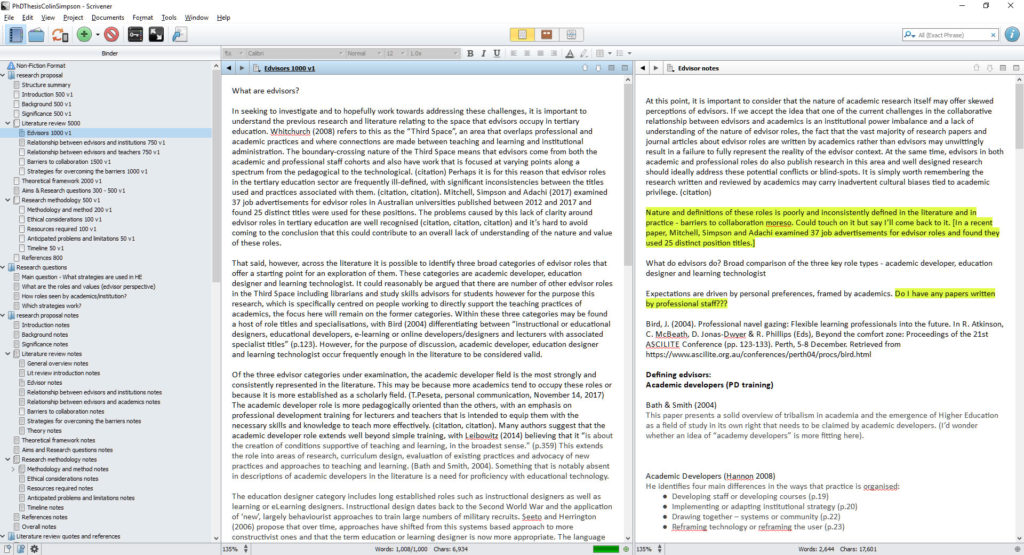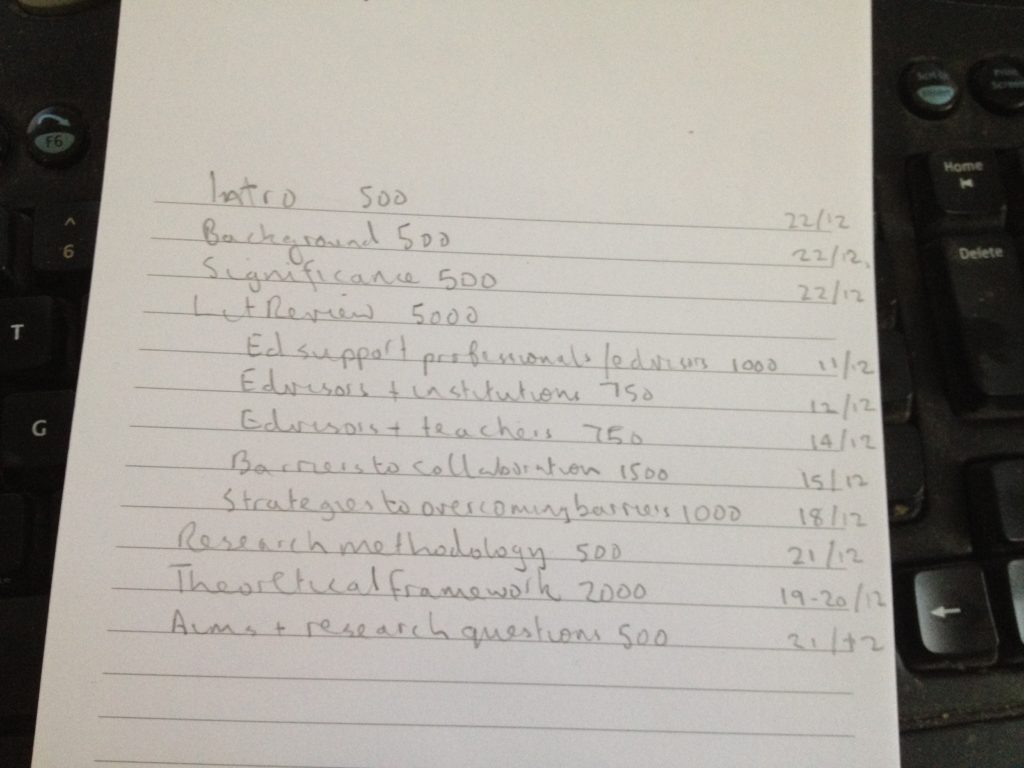Well it was more a day where I’d made a previous commitment to sit on an interview panel for an Education Technologist position for a friend, followed shortly afterwards by a farewell party for a friend in the same unit.
I was able to take a couple of hours to glance over some of my earliest blog posts relating to this research, which were helpful in that I could see how much my question has evolved over time but perhaps lacked a little something in terms of direct relevance to the work that I’m doing now. Fortunately, the responses to the interview questions themselves did align more closely, albeit more in terms of gaining some additional background insights.
My assigned question to ask was along the lines of what technology do you see having an impact on higher education in the next 3-5 years? Something calling for a little crystal ball-gazing and my inclination was far more to give extra points to those who were unwilling to commit to specific products or brands. It was more about getting a sense of who is keeping an eye on things than getting the (impossible) right answer. Responses ranged from mobile devices (fairly likely though parts of my institution seem mystifyingly resistant to this) to AI, AR and drones. One candidate tried valiantly to steer this conversation around to rubrics and assessment and points for trying I guess.
The more revealing question was what do you think the role of an education technologist is? This was interesting because these were all people that had applied for a position with a specified set of criteria but the responses were still relatively varied. Clearly advising on and supporting the use of technology was a common theme in the responses but from there we seemed to veer into whichever areas the candidates felt they were strongest in. Fair enough, the point of the interview is to sell yourself. This included research, production of resources and information management skills. When we asked some to expand on their answers, by differentiating the technologist role from an ed designer or ed developer, things got more interesting. Before I started digging down into this field, my take was that a developer was more like a software or web developer than the more commonly used professional developer. One candidate felt that the ed dev would be building apps. Most got that the designer had more to do with course or curriculum design to varying degrees but most also recognised that there is a lot of overlap between all of these roles and the fact that they all had slightly different takes was good for me in that it reinforced what I’ve seen in the literature (and experienced in the day to day) about the fuzziness of most of these definitions.
I guess another interesting aspect of the interviews was in seeing where everyone had come from. We had people that had entered the field from graphic design, web and multimedia design, teaching and librarianship. For me, none of this disqualified anyone though the harsh reality is that in looking for someone able to hit the ground running, it’s hard not to favour someone with experience working with academics. How you get that experience in the first place is the real challenge I guess and I think I can probably expand a little on the pathways/entry point ideas section – though I don’t feel that there has been a lot of discussion of this in the literature that I’ve seen to date.
So while I didn’t write much and I didn’t find a whole lot in my previous note-taking blog posts, I still feel like I came away with a few more ideas.


